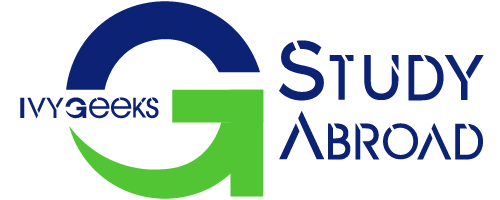Study in USA
Why Study In USA
Pursuing higher education in the United States offers unique opportunities for Indian students. With some of the top universities and programs in engineering and management, the U.S. provides a robust academic environment to prepare students for leadership roles. The culture of innovation and cutting-edge research at American universities enables students to gain exposure to the latest advancements in their fields. The curricula blend theoretical learning with practical application through internships, projects, and global perspectives. This well-rounded education is valued by multinational companies when recruiting talent.
The diverse student community and campus life facilitate cultural immersion. Students can build a global network and develop key skills like cultural awareness, communication, and teamwork. With abundant academic and career prospects, pursuing engineering and management degrees in the U.S. can open doors to pivotal international roles. Specialized guidance services like IVYGeeks help students make informed decisions matched to their career goals and navigate each step from application to enrollment into high-quality programs at leading American universities. Their expertise and tools provide a roadmap to success in globally competitive fields.
Get Free Counselling
Requirements to Study in the USA
Gaining admission to US universities requires international students to demonstrate strong English language abilities, similar to the UK. Most institutions have minimum English proficiency requirements for enrollment eligibility. Mastering academic English is essential for overseas students to thrive in the US classroom setting.
Common English Language Tests Accepted
- TOEFL - The Test of English as a Foreign Language is the most widely accepted English test for admission to US higher education institutions. It evaluates academic English skills in areas like reading, listening, speaking and writing.
- IELTS - The International English Language Testing System is also broadly accepted for admission purposes. It assesses English language proficiency through modules focused on real-world communication.
- Duolingo - The Duolingo English Test is a relatively new and growing computer-based exam that tests English abilities for US university study. It evaluates all language skills in a convenient, cost-effective format.
- PTE - Pearson Tests of English offer another valid standardized test option accepted by American institutions. The computer-based exam mimics real-life English usage in academic settings.
Top universities in USA with their rankings
Harvard University
Typical Ranking Range
Top 3 globally and #1 in the USA
Location
Cambridge, Massachusetts
ESTD
1636
Sector
Public
Massachusetts Institute of Technology (MIT)
Typical Ranking Range
Top 5 globally and #2 in the USA
Location
Cambridge, Massachusetts
ESTD
1861
Sector
Public
Stanford University
Typical Ranking Range
Top 5 globally and #3 in the USA
Location
Stanford, California
ESTD
1891
Sector
Public
University of California, Berkeley
Typical Ranking Range
Top 10 globally and #4 in the USA
Location
Berkeley, California
ESTD
1868
Sector
Public
Princeton University
Typical Ranking Range
Top 10 globally and #5 in the USA
Campus Location
Princeton, New Jersey
ESTD
1746
Sector
Public
Yale University
Typical Ranking Range
Top 15 globally and #6 in the USA
Campus Location
New Haven, Connecticut
ESTD
1701
Sector
Public
Top Programs to Pursue in the United States
The United States has one of the most robust and prestigious higher education systems globally across a vast array of subjects. Top US universities dominate international rankings year after year for their pioneering research, groundbreaking innovation and commitment to academic excellence.
For international students, the breadth and depth of high-quality programs on offer at American institutions create abundant opportunities to gain specialised knowledge and skills aligned with diverse career goals. From undergraduate to doctoral level, students can find dynamic programs to unleash their potential.

- Engineering: Computer Science, Electrical, Mechanical, Biomedical, Chemical, Petroleum.
- Computer Science and Information Technology.
- Business Administration, Finance and Marketing.
- Sciences: Biology, Chemistry, Physics, Mathematics.
- Economics, Political Science and International Relations.
- Media Studies, Journalism and Communication.
- Architecture, Design and Visual Arts.
High Paying Courses in USA
The USA’s world-class universities provide access to some of the most lucrative career opportunities globally across diverse fields. Students pursuing high salary pathways often study computer science, engineering, economics, finance, business, law, medicine and healthcare degrees. These disciplines promise strong early career earnings, with average starting salaries ranging from $60,000 to $90,000. Experienced mid-career professionals in these domains can expect to earn $100,000 to $200,000 on average at top companies.
With pioneering research and close industry linkages, American institutions offer a competitive edge to ambitous international students seeking intellectually engaging careers with substantial financial upside. Top technology firms, financial institutions, hospitals, law firms and other major employers actively recruit exceptional talent from Ivy League colleges, public universities and other prestigious programs across the USA. Whether aiming to launch or advance a high-flying career, graduating from an American university provides globally recognised credentials and income prospects that are among the best internationally across multiple hot fields.
Scholarship and Financial Aid Options in USA
Securing scholarships, grants, or loans can greatly offset the cost of studying in the United States for both domestic and international students. American universities administer substantial financial assistance programs to enhance inclusivity and accessibility of higher education.
University-Based Aid
Merit Scholarships: Top universities provide generous academic scholarships, covering partial or full tuition and living expenses for outstanding students.
Need-Based Grants: Many institutions offer financial grants for students demonstrating financial need.
- Athletic Scholarships: Available for gifted student athletes recruited to university sports teams.
External Scholarships
Numerous external groups and foundations provide scholarships to international students based on country of origin, ethnicity, subject expertise areas, demonstrated social impact potential and other criteria.
US Federal and State Aid
US citizens and eligible non-citizens can access favorable student loans, grants and work-study programs funded federally or by respective states.
International Student Loans
Specialised lenders offer international student loans with favorable terms to fund studies and cost of attendance for students requiring financial support.
With abundant scholarship and financial aid opportunities on offer, the USA aims to empower meritorious students to access world-class education through need-blind admission policies, equitable tuition fees and tailored funding across undergraduate and graduate levels.
Preparing for Career Successm
Career development is a central focus of American higher education. US universities actively champion employability, providing students abundant resources to gain the skills, experiences and connections to launch impactful careers post-graduation.
Personalized Guidance: One-on-one career counseling to create strategic plans matched to interests and aspirations.
Experiential Learning: Opportunities like research projects, internships and global exchanges to apply knowledge and develop leadership capabilities.
Network Building: Direct access to employer events, mentorships and alumni networks for relationship building and visibility.
Interview Preparation: Workshops on resume building, networking, salary negotiation and mock interviews to perform best.
Skills Enhancement: Courses, workshops and coaching to strengthen workplace competencies like communication, critical thinking and team collaboration.
With holistic support spanning self-assessment to job offer, American universities empower students to transform personal passion into professional purpose and lifelong career advancement.
Experiential Learning in the USA
Gaining professional work experience is deeply embedded within American higher education. Whether through internships, co-ops, research or volunteering, students can immerse themselves in hands-on learning opportunities to put academic knowledge into practice.
Solve Real Problems: Work on practical projects and contribute to organizations by applying classroom concepts.
Expand Networks: Interact with working professionals, faculty and alumni to form meaningful connections.
Build Skills: Develop industry and role-relevant capabilities alongside universal workplace competencies.
Open Doors: Convert opportunities into full-time job offers, recommendations and post-graduation career progress.
With abundant experiential learning across academic programs, American universities empower students to transition smoothly into professional roles aligned with their strengths and passions.
Strong Graduate Employability Outcomes
Top American universities actively foster robust industry relationships, powering excellent employment outcomes for graduates. Institutions often report over 90% career outcomes rates for high-demand majors like computer science, engineering, business, healthcare and more.
Surveys indicate international graduates securing competitive roles at major US corporations, thriving startups and global companies that seek the world-class analytical aptitude, innovative thinking and cross-cultural fluency developed at American colleges.
Post-Study Work Flexibility
Under the Optical Practical Training (OPT) program, international students get 1-3 years of US work authorization post-graduation depending on their major, facilitating abundant job search flexibility across employers and locations without needing H1-B visa sponsorship initially.
With exceptional career outcomes and extended post-study work rights, graduating from an American university provides a strategic foundation and experiences to build career momentum in the world’s largest economy.
Application Process

Research Programs and Universities
Explore majors, specializations, rankings, locations, internship opportunities, costs and campus culture across universities. Identify programs aligning with your academic interests and career goals. .

Prepare for Standardized Tests
Register for essential language tests like TOEFL or IELTS and exams like GRE or GMAT based on program requirements. Allow time for thorough preparation.

Verify Eligibility Criteria
Confirm academic background equivalencies, prerequisite coursework, English scores and other qualifications needed for your selected universities and programs.

Compile Your Applications
Strategically present your academic chronology, extracurriculars, essays and recommendation letters tailored for each university application.

Submit Applications
Carefully complete all sections accurately against deadlines. For competitive admissions, apply early action or early decision.

Secure Financial Documents
Research funding options and prepare financial affidavits to meet tuition and living costs. This facilitates visa approvals.

Check Application Status
Carefully weigh acceptance letters and financial aid packages from admitting universities to choose your best-fit option before deadlines.

Accept Your Offer
Accept your preferred university offer by paying initial deposits and securing on-campus housing.

Apply for Your Student Visa
Schedule and thoroughly prepare your visa interview to demonstrate academic intent and financial capabilities.
FAQ
What are the entry requirements to study in the USA?
The main requirements are having strong academic grades in your previous studies, meeting English language proficiency scores on standardized tests like TOEFL or IELTS, taking exams like GRE or GMAT if required by your program, and demonstrating financial capability to fund your education and living costs.
What is the cost of studying in the USA?
The average annual cost of studying in the US including tuition fees and living expenses ranges from $25,000 to $45,000 per year depending on the university, location and program. High-ranked private universities cost more.
How do I fund my studies in the United States?
International students fund their education through scholarships, education loans, personal savings, family contributions, and on-campus jobs during term-time & vacations. Securing external scholarships and graduate assistantships can greatly reduce costs at universities..
Can I work in the USA during my studies?
F-1 visa students can work part-time on-campus jobs for up to 20 hours a week during semesters and full-time during vacations. After your first year, you can also apply for off-campus internships within your field of study based on eligibility.
Is it easy to find work after graduating in the USA?
Yes, the US job market highly values graduates from American universities. Under the OPT program you get 1-3 years of work authorization after finishing your degree depending on your major during which securing job and H1B sponsorship is easier.
How do I choose the right USA university?
Research university rankings, location aspects, specializations offered, industry tie-ups, placement outcomes, accreditations, alumni reviews and admission criteria thoroughly before finalizing universities that best match your budget, career goals and interests.
Planning to Study In USA?
We can't wait to talk to you


